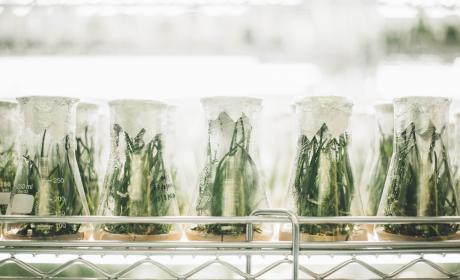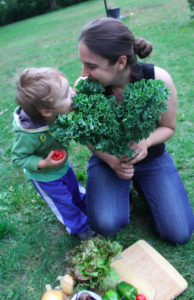[Webinaire] OGM en 2018 : Où en est la biotechnologie dans nos systèmes alimentaires?

Presenté par le Réseau canadien d'action sur les biotechnologies
Le Canada est le quatrième plus important producteur de cultures GM (génétiquement modifiées), et les canadiens sont maintenant les premiers au monde à manger des poissons génétiquement modifiés. Quels sont les aliments GM que nous mangeons et qu'est-ce qui est à venir? Quels sont les impacts connus des aliments et cultures GM au pays après 20 ans?
Ce webinaire (en anglais) fait un survol de où nous en sont au niveau de la technologie et de ses produits, informe les acteurs du mouvement alimentaire et offre une analyse des OGM d'aujourd'hui et du futur.
Présentateurs:
 |
Lucy Sharratt, coordonnatrice du Réseau canadien d'action sur les biotechnologies(En anglais) Lucy Sharratt works in Halifax as the Coordinator of the Canadian Biotechnology Action Network, also known as CBAN. CBAN brings together 16 organizations including farmer associations, environmental groups and international development organizations, all of which have serious concerns about genetic engineering. Lucy previously worked as a campaigner and researcher on this issue at the Sierra Club of Canada and the Polaris Institute in Ottawa. Lucy also coordinated the International Ban Terminator Campaign which secured a strengthened global moratorium on genetically engineered sterile seed technology. |
 |
Genevieve Grossenbacher, chargée de programme et des politiques (USC Canada) et productrice maraîchère biologique(En anglais) Passionate about ecological agriculture and good food, Genevieve always worked to promote local organic agriculture in Canada and abroad. In University, Genevieve was a baker for a student-run vegan local organic cafe. She also founded a group that served free healthy meals to students at events. As soon as she graduated from Environmental Studies, Genevieve went to work on a farm in Havana (Cuba) where she promoted urban agriculture and managed a demonstration garden where she taught students how to grow food. Back in Canada, Genevieve coordinated a collective garden in Montreal and was soon hired as director of an Éco-quartier, a position she only left to focus on her true passion: agriculture. From 2007 to 2009, Genevieve coordinated Soup’s On!, an innovative project at Equiterre aimed at introducing local organic foods in daycares, schools and hospitals. There, Genevieve also co-wrote an educational kit named Soup’s On! as well as a storybook for kids (Kiko et le potager coloré) in order to help kids make more responsible food choices. Genevieve now works at USC Canada where she helps inform and mobilize the public on important food issues. In her spare time, Genevieve loves farming with her husband and her two young sons! Genevieve was recognized by Oxfam in 2012 as being a Female Food Hero. Gen is only on the farm part-time but steers the communications, marketing and business development on the farm. |
 |
Eric Chaurette, chargé des programmes chez Inter Pares (modérateur)(En anglais) Eric holds a Master's degree in environmental studies and has worked for non-governmental organizations in environmental education and community-based conservation in rural regions of Canada and in Latin America. Eric joined Inter Pares in 2005, to support its work with pan-African and national-level organizations promoting agroecology and food sovereignty and control over resources. Since 2011, Eric has also been coordinating an action-research project on landgrabs in West Africa. In Canada, Eric has worked to build greater linkages among social movements for greater economic justice and food sovereignty. This includes supporting the creation of the Canadian Biotechnology Action Network (CBAN), where he was Chair from 2006 to 2011, and of the People’s Food Policy Project. In January 2012, Eric was elected Chair of the Board of Food Secure Canada. His work at Inter Pares now focuses on the Africa region, liaising with counterparts on the issue of control over resources and Food sovereignty. |
- Identifiez-vous pour poster des commentaires

